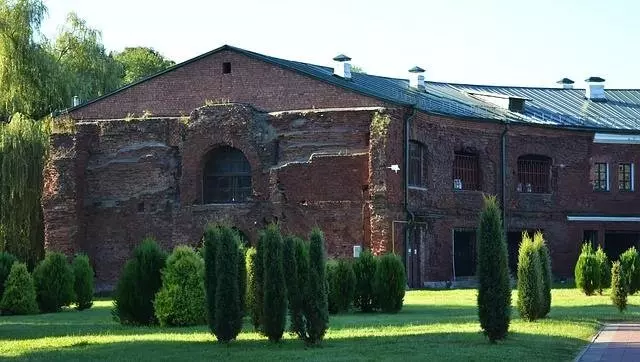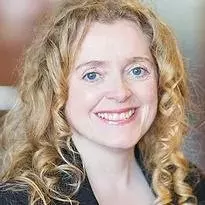Comments
- No comments found

Georgette Mulheir transforms systems of care with even the most challenging of circumstances.
Many know Children’s Rights Activist Georgette Mulheir for leading essential campaigns that remove children from dangerous orphanages. As a global expert on transforming systems of care, Mulheir’s campaigns extend well beyond closing substandard children’s facilities. She also works with child protection organisations to provide young people with the resources they need to live with their families.
Leading change is difficult in any country. But Mulheir faced extreme challenges when persuading the Belarusian government to minimise the institutionalisation of children in Europe’s last dictatorship. Nonetheless, her community-focused strategies enabled essential change throughout Belarus.
When the Berlin Wall fell in 1989, dictatorships across Eastern Europe fell one by one, and even the Soviet Union disintegrated. As the Baltic States, Ukraine, Moldova, Armenia and Georgia all embraced democracy, Belarus remained a dictatorship. Two decades later, President Lukashenko’s government is battling sustained unrest and protest against the authoritarian regime, with mass arrests and suspicious deaths of opposition leaders.
Little is known about this small former-Soviet state, but in 2003, Georgette Mulheir began working there to improve the protection of vulnerable children. As a legacy of communism across Eastern Europe, more than one million children lived in residential institutions – or orphanages – with horrendous conditions and high mortality rates.
Many countries in the region began improving their services for vulnerable children and moving away from institutional care – prerequisites for joining the European Union. As Mulheir worked with many countries to change their systems of care, she found that more than 95 per cent of children in orphanages had living parents, many of whom felt they had no choice but to place their children in institutions because of poverty-related struggles. Parents of children with disabilities often placed them in institutions as the only way to access to health and education services. Meanwhile, some countries – where discriminatory practices against Roma communities were common – routinely placed Roma children in orphanages and residential schools. Mulheir soon concluded that, with the right resources in place, most of these children could live safe, healthy lives with their parents or extended family.
Lukashenko’s victory in the 2020 presidential election led to widespread allegations of vote-rigging, which triggered large-scale protests against his presidency. Belarusian riot police launched vicious crackdowns[CM1] against protestors and human rights defenders. They threw stun grenades into crowds of peaceful protestors and made several violent arrests. In September 2020, the United Nations cited over 450 documented cases of torture and ill-treatment of detainees and further reports of sexual abuse and rape.
Conflict is ongoing in Belarus. In May this year, Belarusian authorities faked a bomb threat, forcing the landing of a Ryanair flight[CM2] in May 2021, faking a bomb threat to arrest an opposition journalist. The EU has now approved sanctions to ‘target industries that bankroll the regime to punish the Belarusian president’.

Like many former Soviet countries, Belarus inherited a system of institutions to ‘care’ for children who had been separated from their families. And, as in the rest of the region, institutions were full of children from poor families and children with disabilities. In 2003, Mulheir visited the country to persuade the government to prevent children from being unnecessarily placed in orphanages. Over the next few years, Mulheir played a major part in a nationwide programme to close Belarusian orphanages and set up family- and community-based services for the most vulnerable children.
“When we started out”, says Mulheir, “I was unsure how difficult this was going to be. As in many countries, the government and local communities didn’t understand the harm that institutions cause. And in some communities, institutions were the main employer.” Moreover, three different government ministries were responsible for institutions, so there was little coordination. Initially, they were unresponsive to plans for change. But these were similar problems Mulheir faced in every country. Belarus, she says, presented an additional challenge.
“Autocratic governments tend to institutionalise children in large numbers, as a method of controlling what they see as problem families.” According to Mulheir, exceptionally hierarchical structures struggle with the notion of less-formalised care and support at the community level. They inherently distrust families who do not conform with their idea of what is normal or acceptable. This had become a pattern of thinking and behaviour among the State authorities.
The catalyst for change, according to Mulheir, came from three exceptional women – a leader of a local NGO, an orphanage director and the Head of Child Protection at the Ministry of Education. Together with the Voluntas organisation, Mulheir launched a campaign to highlight the dangers of institutionalisation with the Belarusian government. The Head of Child Protection was listening and agreed with Mulheir to pilot the closure of one institution. Voluntas was soon contacted by Svetlana, an orphanage director from Grodno in Western Belarus. Svetlana had tried her best to run the orphanage well, but when she followed up young adults who had left her institution, she found many were unemployed, had become involved in criminal activity or had committed suicide. Despite the fact she might lose her own job, she volunteered her orphanage for the pilot closure.
Together with Svetlana, Mulheir and her colleagues plotted a step-by-step exit plan for the 101 children who lived in the institution. When working with these children’s families, they were amazed to find that most of these children and their parents wanted to live together. They worked with the Grodno regional authorities to form key relationships with officials and child protection agencies in the districts where the children’s families lived. Then, the programme team organised training for teachers, police, social workers, and others involved in child protection throughout the community. This way, Mulheir and her colleagues could assess each district’s needs so communities could build services to safely reunite the children with their families.
When the institution closed in 2007, 74 of the children had returned to their parents or extended families, while 15 moved to foster or adoptive families. “The process was not perfect”, says Mulheir, “and a small number of children were moved to other institutions”. But the concept was proven: the authorities saw that 90% of the children were thriving in their families and, therefore, that orphanages were unnecessary, as well as harmful.
This pilot demonstrated what was possible and enabled authorities to create a Belarusian deinstitutionalisation model and integrate this model with the country’s legislation and culture.
Over the next decade, the Belarusian authorities rolled out the programme across the country, reducing the numbers in institutions nationally by almost 80%. Most importantly, they changed their approach to families – offering help and support to families in trouble, rather than automatically removing their children.
Following the success of the pilot programme, Voluntas realised that, despite improvements in services, some families were still struggling to deal with complex problems and risked losing their children. They decided to focus on this group of exceptionally vulnerable parents and built a model of Professionally Guided Peer-to-Peer Parent Support. According to Georgette Mulheir, “Voluntas’ groundbreaking model is based on their understanding of the harm caused when children are separated from families and placed in orphanages. They believe that every child has the right to live with their family, though complex assistance is sometimes necessary and the programme does everything it can to strengthen and support the most vulnerable families.”
Mulheir emphasises that children who return to their families after living in institutions need continued support, else they risk re-institutionalisation. Meanwhile, the parents of these children need help to develop parenting skills. But crisis centres and support facilities can only cope with short-term, critical situations. Communities need an entirely different service to manage the long-term nurturing of family relationships.
The Professionally Guided Peer-to-Peer Parent Support model offers opportunities for community support so families can successfully reunite. With this model in place, parent peers and parent partners form trusting relationships based on their shared experiences. Mulheir has found that peer models who have overcome family difficulties often offer the inspiration parents need to reunite with their children.
When Georgette Mulheir first started to work in Belarus, she found that many children had been separated from their families due to alcoholism and other risky behaviours. “The authorities viewed such families as lost causes”, says Mulheir, “but Voluntas’ work has shown that a blend of professional and peer support can turn many families around.” Larisa was on the verge of losing her parental rights over her first child, having been arrested several times for public intoxication. At first, she rarely attended parent training sessions. She didn’t participate in discussions and kept her distance.
But as Larisa attended more classes, social workers noted changes in her behaviour. Larisa started to communicate more with the children, then enjoyed helping her children achieve success. Voluntas social workers paired Larisa with an older Peer Parent who had overcome identical challenges years earlier. As the Peer Parent encouraged Larisa, she started attending meetings regularly and became more open about traumatic experiences she had suffered. Larisa committed to improve her lifestyle and become a better parent. Most importantly, she stopped drinking.
By the time Larisa became pregnant for the second time, her family and friends from the programme helped her and her boyfriend repair their apartment. And when Larisa returned from the maternity hospital with the new baby, these family and friends had bought a cot, pram, clothes, and toys. Now a mother of two healthy, happy children, Larisa still takes part in the programme and is training to be a Peer Parent herself. She wants to share with others the strength she gained from the support of her community.
There is still much to be done in Belarus – as in many countries – to make sure no child is ever placed in a harmful orphanage. But, as Georgette Mulheir attests, even in complex circumstances, major change can be achieved. “In Belarus, as in every country where I have worked”, says Mulheir, “irrespective of the challenges, individual people – in the government and at the community level – have come together in their shared commitment to doing the right thing for children. And they know that starts by believing in families.”
People around the world know Georgette Mulheir as a children’s rights activist, global systems change expert, author, and pioneer. She has worked with countless governments, donors, and communities to protect children in 33 countries over the past 30 years. Mulheir has also exposed the hidden dangers behind orphanages and other children’s institutions, perhaps most notably in her TED Talk. She’s written several publications that shine a light on how international governments and authorities can promote children’s rights. And she offers consultancy services to ensure the highest standards in children’s health, education, and social protection.
Learn more about Georgette Mulheir

Leave your comments
Post comment as a guest